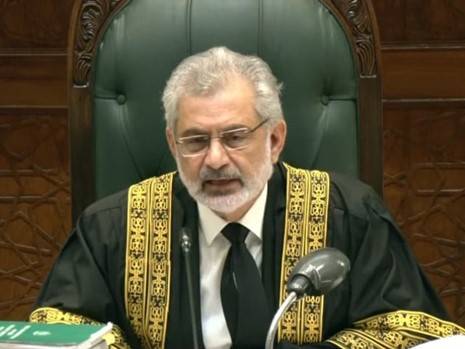
‘Give me disappointment or give me death’
Romantics thrive on disappointments. Disappointments inspire them to weave laments through which they can exhibit their idealistic/romantic dispositions. They need to ‘feel’ to be able to do this. If an occasion isn’t able to get Romantics to emote, they are likely to ignore it. The Irish poet Oscar Wilde wrote, “A dreamer is one who can only find his way in moonlight, and his punishment is that he sees dawn before the rest of the world.” Yes, the much awaited dawn was a disappointment. This is a classic Romanticist dilemma, but one that is created by the Romantic himself to lament about or poetise.
The Romantic disposition often enriches the talents of an artist, poet, novelist or musician. But in politics, Romanticism can spell disaster. It can also make one sound entirely naive, if not downright silly. According to the German philosopher Friedrich Nietzsche, “No artist tolerates reality.” This was coming from the horse’s mouth, because Nietzsche was quintessentially a Romantic.
In 1986, the American social philosopher Guy Oakes wrote that political romantics reduce everything to “aesthetic contemplation.” The purpose of this is to trigger “elevating experiences.” For example, they poeticise conflicts. According to Oakes, they do not do this in order to resolve conflicts. Instead, they see it as an occasion “for the evocation of an emotionally satisfying mood and an aesthetic opportunity.”
Oakes was echoing the thoughts of the controversial German political theorist Carl Schmitt. In his 1919 book Political Romanticism, Schmitt wrote that political romantics poeticise politics and therefore, to them, political issues become nothing more than an occasion to exercise emotions.
All this is done to evoke a mood and a feeling. But outside these lie what politics really is: a pragmatic, amoral and Machiavellian ‘science’. This ‘science’ does not interest the Romantics, unless they poeticise it and give it an aesthetic/emotional meaning. It is either utopian or dystopian, to be longed for or lamented. All talk in this respect by the political romantics is basically for their own emotional satisfaction.
Whereas Schmitt categorically declared that politics and Romanticism were not compatible, the philosopher Isaiah Berlin applauded the political influence of the Romantics. In the book Roots of Romanticism, Berlin praised the Romantics for ending the hegemony of the Rationalists. He was enthused by the manner in which the Romantics embraced irrationalism.
However, the reasons furnished by Berlin for the ascendency of Romantic ideas were not very complimentary. In fact, they were rather condescending. According to Berlin, Romanticism first emerged as a movement in 18th-century Germany because the Germans were “a large collection of socially crushed and politically miserable human beings.” He wrote that the Germans failed to match the social, political and philosophical achievements of the French, and so, they undermined their importance. According to Berlin, Romanticism was thus, a “grand form of sour grapes.”
Romanticism was a rebellion against rationality and modernity, and sometimes even against the modern sciences. As a movement, it peaked in Europe in the 19th century. It glorified emotion, intuition, ‘mysticism’, nature, and pre-modern pasts, which it imagined were pristine. It clashed with the Rationalist philosophies. However, on the one hand, the results of this clash were revolutionary, on the other, they produced a new form of conservatism.
Therefore, whereas the 18th century French Revolution, which sought to destroy the monarchy, nobility and the clergy, was inspired by Romantic ideas, these ideas, ironically, also inspired the glorification of nationalism, traditionalism and a past that was supposedly ‘better’ and more ‘organic’.
The Romantic impulse of the French Revolution was about seeking a utopia (to break away from a corrupt present), while the same impulse left another batch of Romantics craving for the mitigation of revolutionary chaos through a return to established traditions, spirituality and authoritarianism.
On the one hand, this contradictory nature of Romanticism birthed ‘utopian socialism’, on the other, the same Romanticism greatly influenced fascism in Italy and in Spain, and Nazism in Germany.
The last three were extreme forms of nationalism in which the state was to be worshiped, a messianic leader was to be revered, and modernity attacked through glorified imaginings of a ‘pristine’ past. Conventional religion too was to be replaced by a ‘political religion’, or a sacralised ideology with its own rituals.
Therefore, many forms of nationalism too are Romantic — especially those based on racial, ethnic or religious ideologies. These may not always generate totalitarian states or revolutionary upheavals, but they do develop polities with Romantic dispositions. The Romantic impact in such nation-states is so strong that even people who fancy themselves as being critical thinkers can’t escape it, even though they might not be entirely conscious of it.

Take Schmitt for example — an anti-Romantic, but one who ended up supporting Nazism, which was heavily inspired by the German Romantic Movement. Another, albeit lighter, example in this context includes many ‘rational’ commentators in Pakistan’s lawyer and activist communities, who have been exhibiting disappointment towards the current Chief Justice of Pakistan (CJP) Qazi Faez Isa.
They had romanticised Isa’s battles with the controversial former CJP Umar Ata Bandial. They had turned Isa into a heroic figure that would eliminate the establishment’s role in politics. But since Romanticism is not interested in the grey areas in which reality operates, Isa’s tenure has continued to be viewed through Romantic lenses, leaving many of his admirers ‘disappointed.’
This disappointment is an occasion for his admirers to weave laments, expressing their dismay and more so, exhibit their own ‘democratic’ and ‘anti-establishment’ credentials. Their positions on most political issues are inherently utopian and their laments dystopian. There are no grey areas in their ‘analyses.’ In fact, such areas are detested by them, because the image that they want to exhibit of themselves cannot exist in the grey areas.
It was as if they were expecting their once favourite judge to demonstrate sympathy for the sake of providing a ‘level playing field.’ This really was the crux of their argument. Such folk are, by nature, political romantics
Romantics on the religious right in Pakistan relish imagining or even shaping ‘saviours’. But those on the ‘progressive’ or ‘liberal’ sides do so too. They didn’t imagine Isa as a judge who fought a long judicial battle with a CJP who wanted to oust him. They saw him as a judge who would ride in on a white horse to vanquish meddlesome generals.
The disappointment in this respect is the outcome of a Romantic disposition. The disappointed will never be able to continue portraying themselves as gallant democrats and constitutionalists if they begin to view Justice Isa as a pragmatist or a realist. His performance is thus being ‘felt’ by them, not rationally analysed.
Babbling as a revolutionary act
On 13 January 2024, a three-member bench of the Supreme Court, headed by Qazi Faez Isa, delivered a verdict in favour of the Election Commission of Pakistan (ECP). The ECP had challenged a judgment of the Peshawar High Court, ordering ECP to hand back the election symbol of Pakistan Tehreek-i-Insaf (PTI) to the party. The symbol had been withdrawn when the PTI failed to meet certain conditions that the ECP had made mandatory for political parties.
The moment Justice Isa announced his verdict, social media sites exploded with angry rhetoric and bawling laments. This was expected from PTI supporters but, incredibly, their jeremiads were actually drowned out by the much more animated exhibitions of outrage by certain journalists, lawyers and activists.
These folk are fond of imagining themselves as puritans of democracy. That’s fine. But whereas one was expecting an informed critique from them on the verdict, all one got were rhetorical declarations denouncing a top judge who had apparently facilitated the ‘undemocratic’ designs of the military establishment (ME).
Interestingly, during the hearing, which was being streamed live, the eventual critics of the verdict were publicly complaining that PTI’s lawyers were not well-prepared. The party’s lawyers just couldn’t go beyond making claims of how PTI’s jailed leader Imran Khan was ‘the most popular politician in the country’ and that a verdict in favour of the ECP would damage democracy.

Isa is a no-nonsense judge. He enjoys complex discourses, as long as these are rooted in the Constitution and navigated by sound judicial logic. PTI lawyers were putting more effort in trying to use the televised occasion for grandstanding and for portraying the party as a victim of conspiracies, than in providing well-reasoned arguments against the ECP.
Yet, despite this being in full view for all to see on TV, a lot of lawyers, journalists and activists threw up their hands and just couldn’t stop decrying the verdict. It was as if they were expecting their once favourite judge to demonstrate sympathy for the sake of providing a ‘level playing field.’ This really was the crux of their argument.
The kind of folk that I am earnestly trying to figure out here are, by nature, political romantics. In the not-so-distant past they had imagined Justice Isa as a judicial messiah. Justice Isa is heavily invested in delivering verdicts that best manifest the word and spirit of the Constitution and the law of the land. There was nothing undemocratic about the verdict. The onus of PTI’s defeat in this context squarely lay on certain blunders committed by the party and its lawyers.
How on earth was a judge such as Justice Isa expected to ignore the many obvious deficiencies in the ‘arguments’ presented by PTI’s lawyers, and then extend some extrajudicial sympathy to the party ‘for the sake of democracy?’ The mind boggles.
The manner in which the romantics reacted was largely about them feeling jilted by a scenario in which a conceptual reality that they had created in their heads clashed with an empirical reality, and then crumbled. But this alone was not the only reason. Nor was it just about an intense concern for the wellbeing of Pakistani democracy. I’m sure each one of them is the world’s greatest lover of democracy, but there was something else at play as well. Let me explain.
In a 2008 essay, the Italian sociologist Gianpietro Mazzoleni wrote: “News values and business goals promote populist leaders, creating a kind of complicity between the press and these politicians.” In a 2023 essay, the Brazilian journalist Giulia Sbaraini Fontes posited the same. By this they do not mean media groups that overtly support populist politicians, and vice versa, but those who overtly oppose them.
Both Mazzoleni and Fontes are of the view that populist leaders are often hostile towards mainstream media. But news organisations eventually benefit from this. The more a media group is attacked by a populist, the more it exhibits itself as a ‘defender of democracy’ and, therefore, the more it focuses on news related to the populist. This aids the group in attracting a larger audience.
For example, Fontes wrote that Brazilian newspapers that were being scathingly criticised by the populist politician Jair Bolsonaro saw an increase in their circulation. The newspapers began to position themselves as defenders of Brazilian democracy. But, according to Fontes, to underline their ‘pro-democracy’ credentials, these newspapers began to increasingly focus on publishing news about Bolsonaro.
Ironically, this actually elevated Bolsonaro’s populist appeal and helped him win the 2018 Brazilian presidential election. To Mazzoleni and Fontes, when media groups (and individual journalists or activists) are attacked by populists, they highlight these attacks as a way to position themselves as defenders of democracy. This helps them attract a larger audience. But the more they speak about their democratic credentials, the more they have to speak about the populist. This becomes a cynical cycle which benefits both the adversaries, but not necessarily democracy.
In a surreal twist, the meltdown witnessed on 13 January among the romantics was about them latching on to the coattails of a former ‘oppressor,’ Imran Khan, and creating for themselves a new ‘threat to democracy.’ To sustain their democratic credentials, the romantics required a new foe. With the former oppressor now in jail, Isa became the new enemy.
Secondly, the vlogs, columns and social media posts of the outraged lot witnessed a massive surge in viewership, readership, ‘likes’ and reposts. Thess puritans of democracy decided to paint Justice Isa as the new anti-democracy villain without offering any meaningful argument beyond the rhetorical demand for a ‘level playing field’ and the usual anti-ME tirades. Nor have they presented any convincing evidence whatsoever to link Isa’s verdicts to any diabolical ‘plan.’
Puritanical dispositions, too, can become ploys enacted to boost one’s own not-very-ideological interests. It’s not a very honest idea to continue playing the holier-than-thou role. Empirical reality can very easily bring it into question and expose it as empty rhetoric deployed to bolster one’s cynical need for attention and ‘popularity.’ It’s about political romantics giving rhetorical babbling ‘revolutionary’ aesthetics to please themselves.

